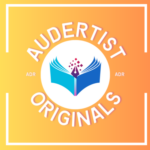Are you an aspiring non-fiction author looking to share your knowledge and expertise with the world? In this guide, we’ll dive into the best book writing tips for non-fiction authors, covering everything from planning and research to writing, editing, and publishing just for our non-fiction writers!
The Planning Phase: Laying a Solid Foundation
- Define Your Topic and Target Audience: Start by identifying your book’s topic and the specific audience you want to reach. Understanding your target readers will help you tailor your content, language, and approach to resonate with them effectively.
- Conduct Thorough Research: Gather as much information as possible from reliable sources, including books, journals, online resources, and expert interviews. The more research you do, the more credible and authoritative your book will be.
- Develop an Outline: Create a detailed outline that organizes your content into chapters and subsections. This will help you stay focused and ensure a logical flow throughout your book.
- Set Realistic Deadlines: Writing a book takes time and dedication. Set achievable deadlines for yourself, whether it’s a daily word count goal or chapter milestones, to keep yourself on track.
The Writing Process: Bringing Your Ideas to Life
- Find Your Writing Rhythm: Experiment with different writing techniques and environments to find what works best for you. Some authors prefer writing in the morning, while others thrive at night. Discover your optimal writing conditions and stick to them.
- Show, Don’t Tell: Instead of simply stating facts, use vivid descriptions, examples, and anecdotes to engage your readers and make your points more memorable.
- Stay Organized: Keep your notes, research materials, and chapter drafts organized and easily accessible. This will save you time and frustration when you need to reference specific information.
- Seek Feedback: Share your work with trusted friends, colleagues, or a writing group. Fresh perspectives can help you identify weaknesses, clarify confusing sections, and improve your overall writing.
The Editing Phase: Polishing Your Masterpiece
- Take a Break: After completing your first draft, step away from your work for a few days or weeks. This will help you approach the editing process with a fresh perspective.
- Self-Edit Thoroughly: Read through your manuscript multiple times, focusing on different aspects with each pass, such as structure, flow, grammar, and factual accuracy.
- Consider Professional Editing: While self-editing is crucial, consider hiring a professional editor to provide an objective and experienced eye. They can catch errors and inconsistencies you may have missed.
- Format and Design: Pay attention to the formatting and design of your book. Choose a clear, readable font and layout that enhances the reading experience.
The Publishing Journey: Sharing Your Work with the World
- Explore Publishing Options: Decide whether you want to pursue traditional publishing or self-publishing. Each route has its advantages and challenges, so research and weigh your options carefully.
- Build Your Author Platform: Establish an online presence by creating a website, blog, and social media accounts. This will help you connect with potential readers and promote your book effectively.
- Develop a Marketing Strategy: Whether you choose traditional or self-publishing, you’ll need a solid marketing plan. Explore various promotional channels, such as book tours, media appearances, social media campaigns, and book giveaways.
- Embrace Continuous Learning: The publishing industry is constantly evolving, so stay up-to-date with the latest trends, technologies, and best practices. Attend writing conferences, workshops, and connect with other authors to continue growing your skills.
Comparison Table: Traditional Publishing vs. Self-Publishing
| Factor | Traditional Publishing | Self-Publishing |
| Editorial Support | Provided by the publisher | Author responsible for editing and proofreading |
| Distribution | Publisher handles distribution to bookstores and online retailers | Author responsible for distribution channels |
| Marketing and Promotion | Publisher typically handles marketing and promotion | Author primarily responsible for marketing and promotion |
| Costs | Author typically receives an advance, but no upfront costs | Author bears all costs (editing, design, printing, etc.) |
| Royalties | Typically lower royalty rates (10-15%) | Higher royalty rates (50-70%) |
| Control | Publisher has control over content, design, and pricing | Author maintains full control |
| Timelines | Longer process (1-2 years or more) | Faster time to market |
Frequently Asked Questions (FAQs)
- How long does it typically take to write a non-fiction book?
The time it takes to write a non-fiction book can vary greatly depending on the length, topic, and the author’s writing pace. Generally, it can take anywhere from several months to a year or more to complete a full-length non-fiction book. - Should I hire a professional editor?
While not mandatory, hiring a professional editor is highly recommended, especially for first-time authors. Professional editors can provide invaluable feedback, catch errors and inconsistencies, and help polish your manuscript to a higher standard. - How do I choose a publishing route?
The choice between traditional publishing and self-publishing depends on your goals, resources, and preferences. Traditional publishing offers the prestige and support of an established publisher, but less control and lower royalties. Self-publishing gives you complete control but requires more upfront investment and marketing efforts. - How important is building an author platform?
Building an author platform is crucial for both traditional and self-published authors. It helps you connect with readers, establish your brand, and promote your book effectively. Social media, a website, and blog can be powerful tools for cultivating your author platform. - What are the best marketing strategies for non-fiction books?
Effective marketing strategies for non-fiction books include leveraging your expertise through public speaking, guest blogging, podcast appearances, and media interviews. Additionally, leveraging your network, hosting book events, and offering special promotions or giveaways can help generate buzz and interest.
By following these book writing tips for non-fiction authors, you’ll be well on your way to crafting a compelling, informative, and successful book. Remember, writing a book is a journey, and embracing the process with dedication, passion, and a willingness to learn will ultimately lead to a rewarding achievement.






